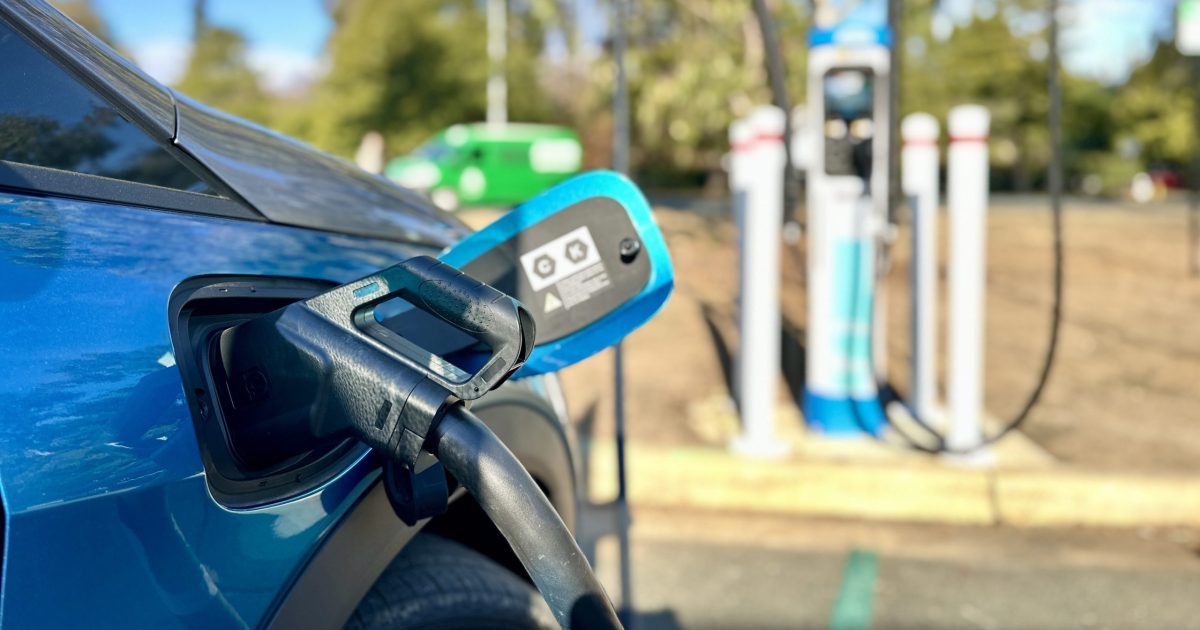You’ve got your electric vehicle – will you use a public or private charger? Photo: James Coleman.
As of the end of June 2023, the number of EVs sold in Australia was almost three times higher than in 2022, and the number of EV charging stations in Australia roughly doubled in the three years leading up to 2022.
Prices for public EV charging can vary depending on location, charging speed, time of day and more. Unless you live near a free public charging station, a home charger is usually the cheapest option.
There’s also value in the convenience of a home charging station.
“Not only can you save money by charging your vehicle from renewable energy, you can get a full charge overnight,” True Connection Electrical owner Tim Middleton says.
Depending on your vehicle and the speed of the charging station, you’re not guaranteed a ‘full tank’ from a public charger, and rapid public chargers can be expensive, especially at peak times.
Home charging options generally fall under two categories, and the cheapest is a plug-in style unit that connects to an existing power point. But there’s a downside.
“They’re super slow and often don’t cut it,” Tim says.
The second and superior option is to install an EV wall charger. Tim says they are up to five times faster than normal powerpoint plug-in style chargers, but there are a few things to consider before you rush out to purchase one.
First, you’ll need to understand the nature of your home switchboard.
“Is it up to spec, or will it require work to install the new circuit for the EV charger? Are you on a single or three-phase system?” Tim says.
“Basically, you need to know what type of electrical supply your house is hooked up to from the grid because that’ll impact the types of EV charger wall units you can install.”
You may also wish to consider placement. For convenience, most wall-mounted chargers are placed inside the garage, but if this isn’t an option, there are weather-rated models designed for charging outside the home.
NRMA data suggests the cost of a charging station itself can range from $600 to $2500, depending on the brand and features, while installation costs can range from $500 to $1500, depending on labour requirements such as electrical upgrades.
Tim says it’s well worth it.
“It’s an inexpensive option for the convenience it provides,” he says.
The ACT Government offers a Sustainable Household Scheme that provides a loan of up to $15,000 to help with the cost of installing an EV charger. The loan can also cover the cost of upgrading to three-phase power if needed. An ACT-licensed electrician is required to install an EV charger.
For information or to obtain a quote, visit True Connection Electrical.






